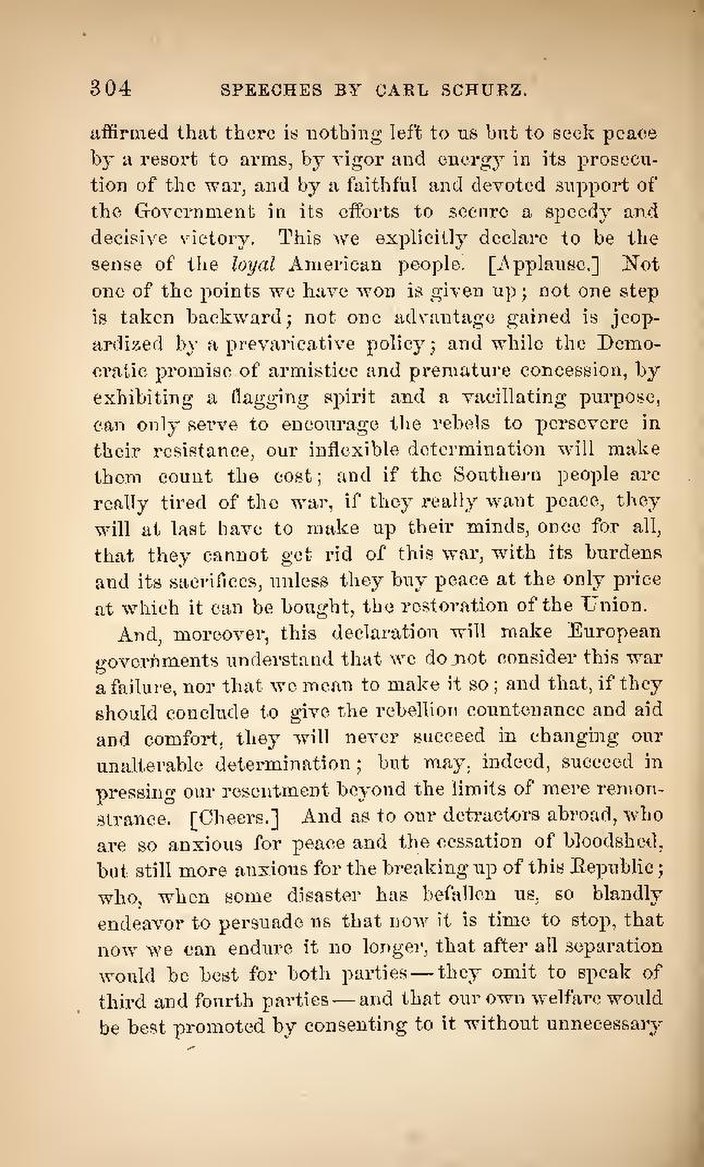affirmed that there is nothing left to us but to seek peace by a resort to arms, by vigor and energy in its prosecution of the war, and by a faithful and devoted support of the Government in its efforts to secure a speedy and decisive victory. This we explicitly declare to be the sense of the loyal American people. [Applause.] Not one of the points we have won is given up; not one step is taken backward; not one advantage gained is jeopardized by a prevaricative policy; and while the Democratic promise of armistice and premature concession, by exhibiting a flagging spirit and a vacillating purpose, can only serve to encourage the rebels to persevere in their resistance, our inflexible determination will make them count the cost; and if the Southern people are really tired of the war, if they really want peace, they will at last have to make up their minds, once for all, that they cannot get rid of this way, with its burdens and its sacrifices, unless they buy peace at the only price at which it can be bought, the restoration of the Union.
And, moreover, this declaration will make European governments understand that we do not consider this war a failure, nor that we mean to make it so; and that, if they should conclude to give the rebellion countenance and aid and comfort, they will never succeed in changing our unalterable determination; but may, indeed, succeed in pressing our resentment beyond the limits of mere remonstrance. [Cheers.] And as to our detractors abroad, who are so anxious for peace and the cessation of bloodshed, but still more anxious for the breaking up of this Republic; who, when some disaster has befallen us, so blandly endeavor to persuade us that now it is time to stop, that now we can endure it no longer, that after all separation would be best for both parties—they omit to speak of third and fourth parties—and that our own welfare would be best promoted by consenting to it without unnecessary
